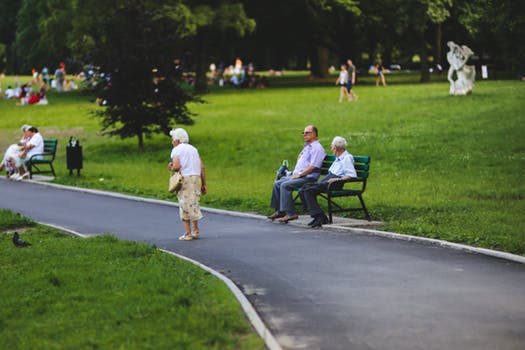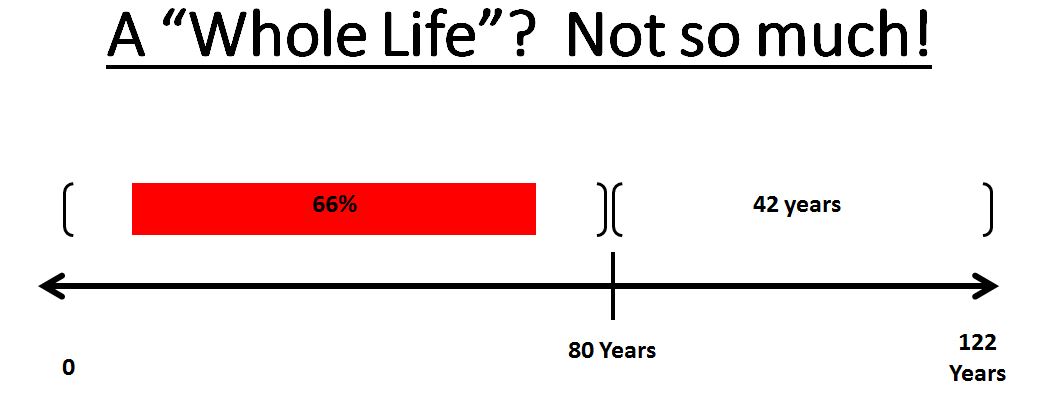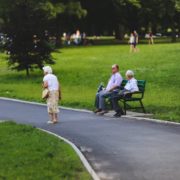The Dirty Dozen of Accelerated Aging

News alert!!
You’re going to die. Get used to it!
But don’t get so used to it that you make it happen faster than it needs to.
One hundred years ago, we accepted our short life-spans as fate, God’s will. Until the last half-century or so, death was largely random and immutable. It was not that long ago that practitioners conceded conditions such as tuberculosis, hardening of the arteries, Alzheimer’s to be totally due to aging. Thus, fate ruled and what happened wasn’t challenged. Thankfully, we now know that fatalism is wrong.
Dr. Walter Bortz in his book “Dare To Be 100” says “Sure, aging and the passage of time play a role, but not nearly to the extent that has been presumed until now. This is great news. For conditions of old people not to be due to the passage of time gives hope that counterstrategies can be derived to prevent or reverse at least a major part of them.”
Given that we have a longevity benchmark set for us by Madame Jeanne Louise Calment of Paris, France, who lived to 122 years and 164 days, we can then ask why do we, especially as Americans with our average 80-year lifespan, fall so woefully short of that benchmark.

Now that we know that genetics play a minor role (perhaps 20-30%) in our longevity, and virtually none after age 65, we can then zero in on what do we do, or don’t do, that may be determining our longevity or lack thereof.
Here’s my selection for a “dirty dozen” life shorteners.
- No exercise. I know, you’re tired of hearing it. And I know it’s likely you will buck it up at some point and renew that gym membership and just as likely you will fall off again six weeks later. It’s just not built into your lifestyle and it won’t sustain until you do. Think of it this way. Can you find 2.6% of your week that is going to unhealthy activities (TV, barstools, Facebook, et.al.) and convert that to 45 minutes of combined aerobic and strength training six days of the week? That’s only 10% of the time the average American male spends each week watching TV (49 hours). The potential ROI: living longer, dying shorter; more vitality longer; look better, feel better; amaze your overweight, sedentary, deteriorating friends; lower healthcare costs. Perhaps this admonition from Dr. Henry Lodge in the book “Younger Next Year” will help: “Aerobic exercise will give you life; strength-training will make it worth living.”
- Diet heavy in animal products. Heart disease remains the number one killer in our culture. The link between heart disease and a diet heavy in animal products i.e. meat and dairy is indisputable despite all the claims to the contrary by those industries. A whole-food, plant-heavy diet brings with it a long list of benefits, only one of which is the reduced likelihood of heart disease. It also reduces the possibility of cancer, stroke, diabetes, and dementia which round out the rest of the top five killers in our culture.
- Mindset. It’s amazing and disturbing to me how many of my generation are still of the mindset that senescence and frailty are automatic when we have so much evidence and knowledge to the contrary and many weapons against both. Any personal move to add years to your life and life to your years has to start with a mindset that doesn’t accept this old thinking.
- Healthcare illiteracy. We’ve allowed our personal healthcare to become a $35 co-pay experience with a physician who is entrenched in a disease-care system focused on cure and not on prevention. As such we put our self-care in a reactive mode versus a proactive mode. We think health only when something skids off the rails and then face a system that only knows drug it or cut it out. One of the major keys to longevity is “self-efficacy” i.e. taking control of your own health destiny by understanding how your biology works, knowing where you stand against the key biomarkers of good health (see Key Step #2 in my free downloadable e-book Achieve_Your_FULL_Potential (2)), and taking charge of your own health through increased knowledge and proactive action.
- Conformity. Sir Walter Scott said he would trade whole years filled with mindless conformity for “one hour of life crowded to the full with glorious action, and filled with noble risks.” When dying people in a hospice are asked about any regrets they had about their lives, by far the most common regret is “I wish I had pursued my dreams and aspirations, and not the life others expected of me.” ‘Nough said. Conformity involves comparison. Comparison is one of the biggest killers of happiness.
- Suppressing courage. In the same hospice study, the second most common regret was “I wish I had the courage to express my feelings and speak my mind.” The author of the study, an Australian palliative care nurse by the name of Bronnie Ware learned that “many of her dying patients believed they suppressed their true feelings and didn’t speak their mind when they should have because they wanted to keep peace with others.” Most of them chose not to confront difficult situations and people, even when it offended them. By suppressing their anger, they built up a lot of bitterness and resentment which ultimately affected their health. See the complete article here.
- Toxic relationships. Jim Rohn, the renowned businessman and motivational speaker, famously said that “we are the average of the five people we spend the most time with.” Relationships with toxic people steal away life-giving energy while being around positive, encouraging, supportive people who are continuing to grow can restore energy. Choose your relationships wisely and dissolve those that are harmful.
- Stopping learning. Historian Peter Laslett emphasizes that only by living into our natural lifespan are we able to exploit our true potential. As we age, our brain cells can become intimately connected with new and emerging realities. A lifelong strategy of learning is a potent force for good. Smart people live longer.
- Isolation. According to the AARP Foundation, the health risk of prolonged isolation is equivalent to smoking 15 cigarettes a day. Research has shown a 26 percent increased risk of death due to the subjective feelings of loneliness.
- Not working. Evidence has been in for a long time. Work is necessary for longer, healthier living. Polls of centenarians have revealed that an astonishingly high percentage of them continue to work and that they rank working alongside being able to walk as one of the keys to their longevity.
- Narrowed comfort zones. As we age, we may tend to narrow our comfort zones. For example “I’ve never done that” or “I don’t know anything about computers” or “I’m too old to start that”. These responses are indicators that the fossilization process is underway. The fact that you hear 50-year olds making these statements is proof that “old” can start at any age. Source: The New Retirementality.
- Traditional retirement. Going over the cliff from labor-to-leisure, vocation-to-vacation retirement can erode sense of purpose and identity. Without purpose, many of the life-shortening elements of retirement begin to creep in – boredom, increased isolation, declining social engagement, reduced physical activity, depression. One in five of Americans over 65 suffer from some level of depression. Men aged 75 and older have the highest annual suicide rate of any group.
In the final pages of his book “Roadmap to 100”, Dr. Bortz leaves us with this poignant thought: “Our ripples, the energy signature of our life, remain and endure. Rippling exalts Mozart, Buddha, Aristotle, Christ, Einstein, Darwin, to name a few, whose lives’ energies persist and penetrate today in a larger way than they did while alive. Similarly, even the most modest among us leaves ripples behind.”
“Once we confront our own mortality, we find it vastly easier to re-arrange our priorities, communicate more deeply with those we love, appreciate more keenly the beauty of life, and increase our willingness to take the risks necessary for personal fulfillment. And imprint our ripples on the cosmos forever.”





Trackbacks & Pingbacks
[…] The Dirty Dozen of Accelerated Aging […]
[…] https://makeagingwork.com/2018/04/16/the-dirty-dozen-of-accelerated-aging/ […]
[…] The Dirty Dozen of Accelerated Aging […]
[…] last week’s blog, I wrote: “When dying people in a hospice are asked about any regrets they had about their […]
Leave a Reply
Want to join the discussion?Feel free to contribute!